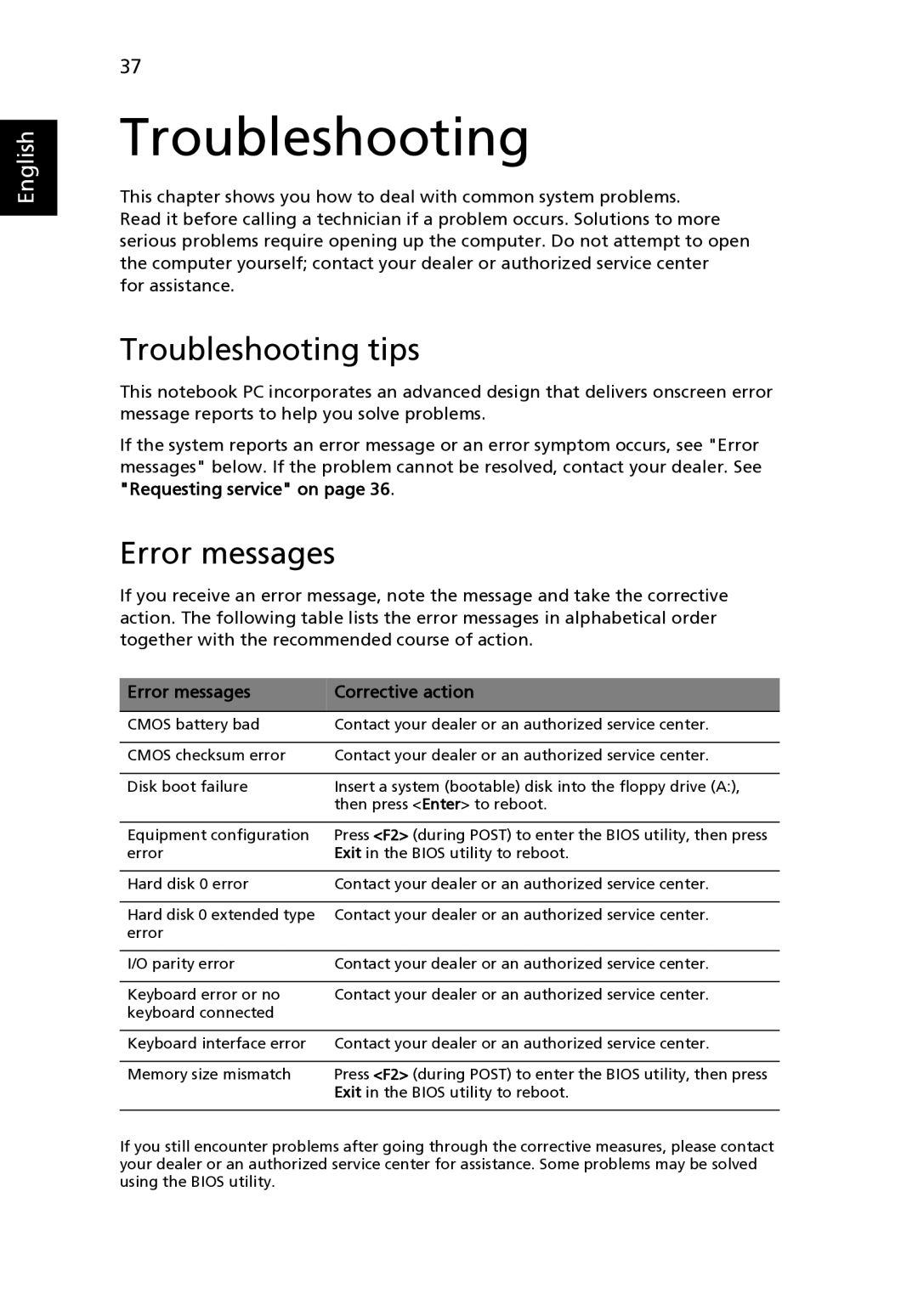English
37
Troubleshooting
This chapter shows you how to deal with common system problems. Read it before calling a technician if a problem occurs. Solutions to more serious problems require opening up the computer. Do not attempt to open the computer yourself; contact your dealer or authorized service center for assistance.
Troubleshooting tips
This notebook PC incorporates an advanced design that delivers onscreen error message reports to help you solve problems.
If the system reports an error message or an error symptom occurs, see "Error messages" below. If the problem cannot be resolved, contact your dealer. See "Requesting service" on page 36.
Error messages
If you receive an error message, note the message and take the corrective action. The following table lists the error messages in alphabetical order together with the recommended course of action.
Error messages | Corrective action |
|
|
CMOS battery bad | Contact your dealer or an authorized service center. |
|
|
CMOS checksum error | Contact your dealer or an authorized service center. |
|
|
Disk boot failure | Insert a system (bootable) disk into the floppy drive (A:), |
| then press <Enter> to reboot. |
|
|
Equipment configuration | Press <F2> (during POST) to enter the BIOS utility, then press |
error | Exit in the BIOS utility to reboot. |
|
|
Hard disk 0 error | Contact your dealer or an authorized service center. |
|
|
Hard disk 0 extended type | Contact your dealer or an authorized service center. |
error |
|
|
|
I/O parity error | Contact your dealer or an authorized service center. |
|
|
Keyboard error or no | Contact your dealer or an authorized service center. |
keyboard connected |
|
|
|
Keyboard interface error | Contact your dealer or an authorized service center. |
|
|
Memory size mismatch | Press <F2> (during POST) to enter the BIOS utility, then press |
| Exit in the BIOS utility to reboot. |
|
|
If you still encounter problems after going through the corrective measures, please contact your dealer or an authorized service center for assistance. Some problems may be solved using the BIOS utility.
